#Linnet Ridgeway
Text
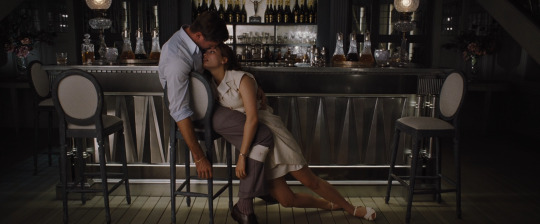
Death on the Nile (2020) dir. Kenneth Branagh
#Death on the Nile#2020s#movie#смерть на ниле#Kenneth Branagh#Hercule Poirot#Gal Gadot#Linnet Ridgeway#Armie Hammer#Simon Doyle#Emma Mackey#Jacqueline de Bellefort#Letitia Wright#Rosalie Otterbourne#Sophie Okonedo#Salome Otterbourne#Tom Bateman#Bouc#Annette Bening#Euphemia Bouc#Rose Leslie
166 notes
·
View notes
Text

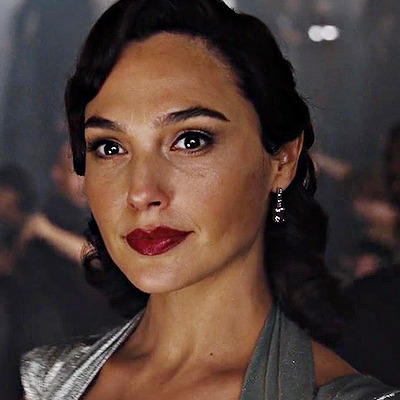

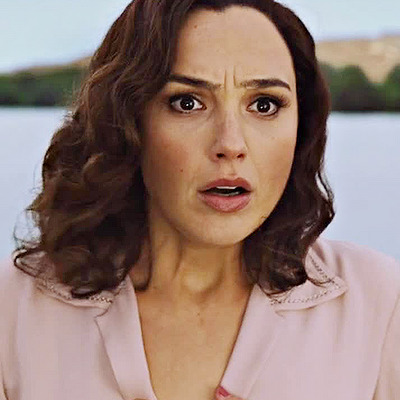


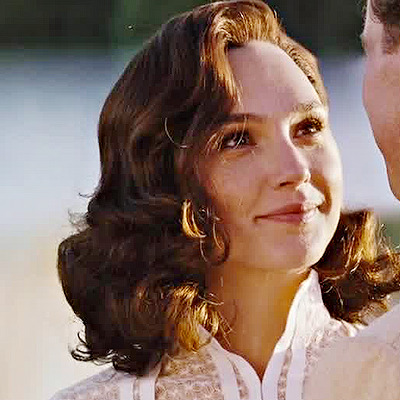
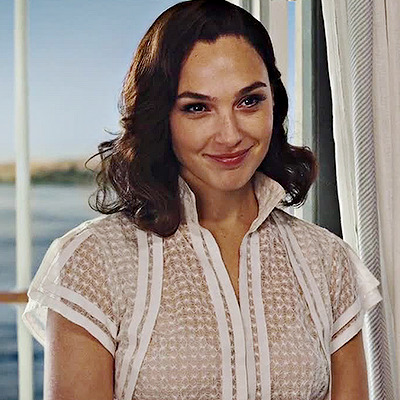
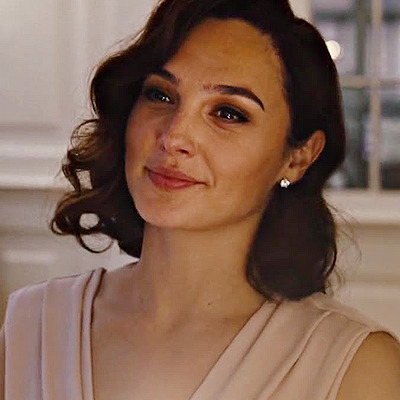

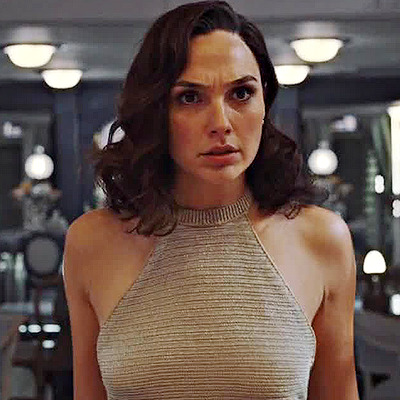
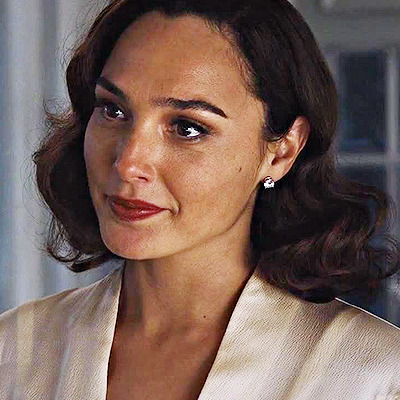
Linnet Ridgeway - Death on the Nile, 2022
#linnet ridgeway#icons#death on the nile#gal gadot#agatha christie#linnet ridgeway icons#death on the nile icons#gal gadot icons#agatha christie icons#random icons#icons heart of stone#diana prince#diana prince icons#wonder woman#wonder woman icons#gal gadot wonder woman#shazam! fury of the gods#shazam! fury of the gods icon#gal gadot red notice#red notice#red notice movie#red notice icons#sarah black#sarah black icons#aviso vermelho#aviso vermelho icons#icons twitter#icons actress#icons female#icons girls
28 notes
·
View notes
Photo


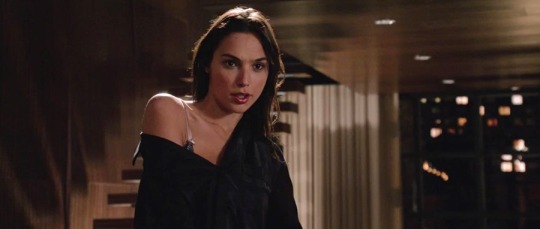




Characters played by Gal Gadot
82 notes
·
View notes
Text
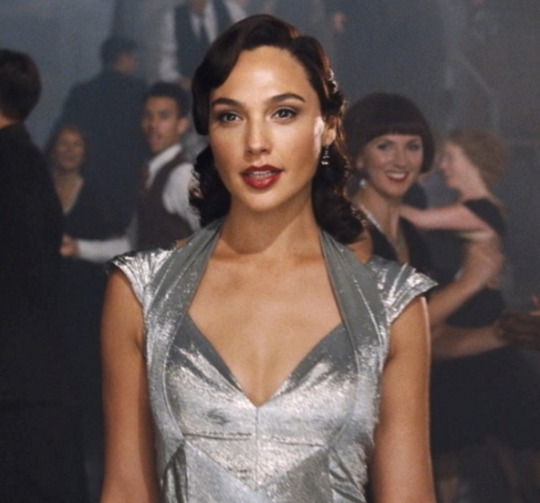

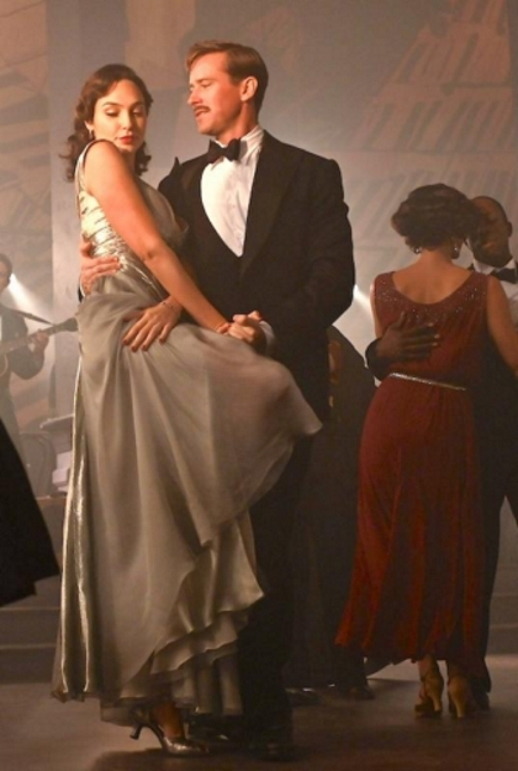





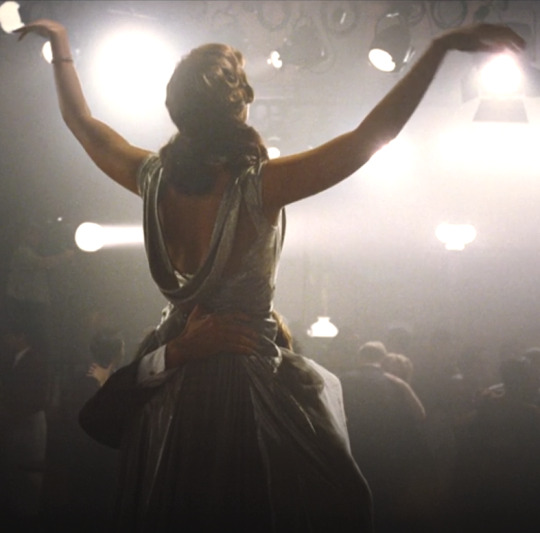
One Dress a Week Challenge
May: Gold & Silver
Death on the Nile / Gal Gadot as Linnet Ridgeway (later Doyle)
Linnet wears this glamorous silver dress for her first appearance, establishing her as a wealthy style icon. The skirt is made of chiffon or some similar material in silver-grey, while the bodice is of silver lame with strips of the same material hanging down over the skirt. The construction of the bodice is quite intricate, with triangular insets just under the bust in front and a low back with a hanging loop of fabric that looks forward to 1940s styles. (For comparison, see the coat that goes with Ginger Rogers' pink dress from The Barkleys of Broadway in 1949.) The "lift" photo shows that this loop swings freely.
There is a matching shoulder cape as well, but we never get a good look at it, as she removes it immediately upon entering the club. Otherwise, she keeps accessories to a minimum: silver pumps, small earrings (pearl?), and a rather nice bracelet (see below).

#one dress a day challenge#death on the nile#one dress a week challenge#silver dresses#gal gadot#movie costumes#death on the nile 2022#linnet ridgeway#agatha christie#1930s style#1930s fashion#2022 films#2022 movies#silver dress
34 notes
·
View notes
Text
(lil edit i made cause there’s literally none and posting it here cause everyone on my tiktok knows me irl and that’s embarrassing)
#death on the nile#hercule poirot#russell brand#dr windlesham#linus windlesham#linnet ridgeway#murder on the orient express
15 notes
·
View notes
Text
@threecardtrick continued from here

the reply is so ruinous in its truth she nearly takes a toothpick to her eye - martini olive included, anything to expunge the writing on the wall. written on the inside of her lids. on the very back she had embedded her blade - its handle carved in letters that read 'best friend'.
she pushes up from the bartop, turning in search of a buoy - a boy - buffered by friends and family across the room; whose eyes she catches hook to gill {there is no net like the silk of her slips, her hips, her kisses} but it is to her beloved bodyguard she addresses.
"no repeats, cromwell." simon will not be stolen a second time with anything less than a sundry of sex and coin - both of which she has in wretched excess. "history has enough civil wars without us adding to them." she can be the higher perched - her pride and privilege make it possible.
even so, this begins to tire...to taint the happily hereto after she would have laid along her table. "but see to her all the same."
if loose ends need be tied about a brick and tossed into the river - so be it.
2 notes
·
View notes
Text
Gal Gadot on Death on the Nile (2022)
as Linnet Ridgeway on Death on the Nile
Information on beautifulfaces
Like or reblog.















































































#Gal Gadot#icons: Gal Gadot#Gal Gadot icons#Gal Gadot as linnet ridgeway#Gal Gadot on death on the nile#Gal Gadot death on the nile#death on the nile#icons
8 notes
·
View notes
Text
Letitia Wright
Playing Rosalie Otterbourne in Death on the Nile 2022

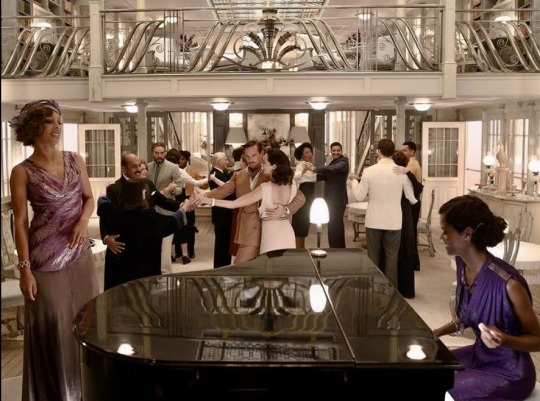


Rosalie Otterbourne is said to be the boarding school friend of Linnet Ridgeway but she's also Salome Otterbourne's niece and manager. She knows how to handle her financials well and she doesn't sign without reading. Rosalie likes her cash up front too. She plays the piano and sometimes sings with her aunt.
#rosalie Otterbourne#rosalie otterbourne letitia wright#rosalie otterbourne x poc!fem!reader#rosalie otterbourne × black!fem!reader#letitia wright x black!reader#letitia wright x reader#Letitia wright#rosalie otterbourne fluff#rosalie otterbourne smut#rosalie otterbourne x reader#rosalie otterbourne x fem!reader#rosalie otterbourne x fem reader#rosalie otterbourne x black!reader#rosalie otterbourne imagine#rosalie otterbourne death on the nile#letitia wright rosalie otterbourne#azail is bored#shuri x f!reader#shuri x fem!reader#shuri imagine#Shuri x reader#shuri smut#shuri black panther#shuri angst#black panther shuri#Letitia wright shuri#shuri udaku x black!reader#shuri udaku#black panther imagine#death on the nile
171 notes
·
View notes
Photo
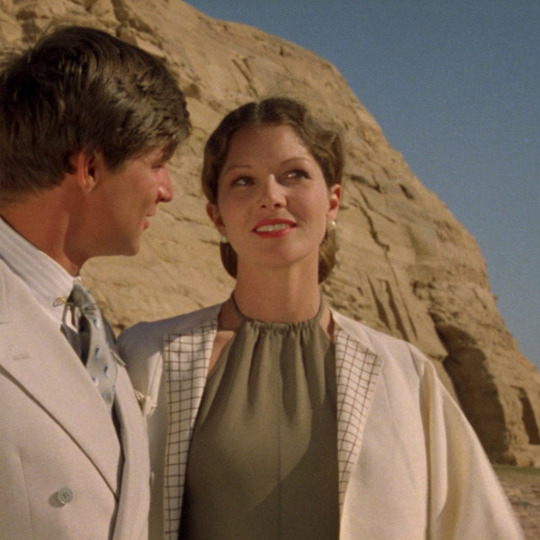
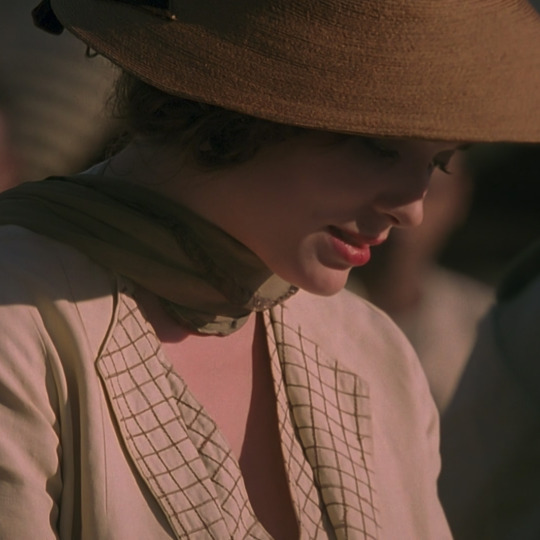
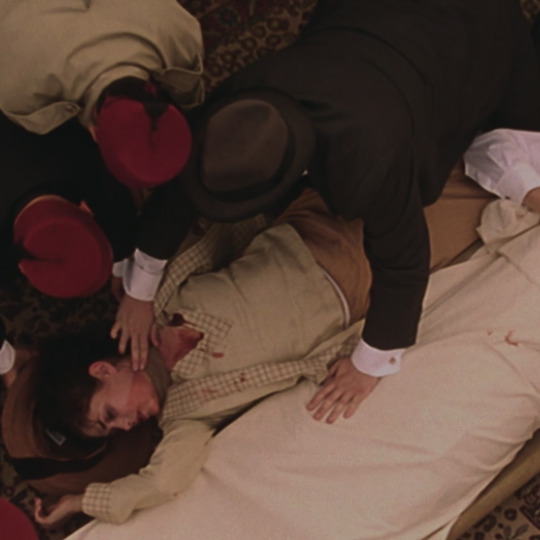

This cream-colored coat lined with a green windowpane pattern was first seen in the 1978 film Death on the Nile, where Lois Chiles wore it as Linnet Ridgeway. Interestingly, the jacket was used again in the 2004 production of Death on the Nile from the ninth season of Poirot. It was spotted on Emma Griffiths Malin as Jacqueline De Bellefort, who wore it with a matching sweater. Was the sweater made for the original Death on the Nile and never utilized? Was it made for the 2004 production and matched as closely as possible? If anyone has any further details on this mystery, do let us know.
Costume Credit: Julie
E-mail Submissions: [email protected]
Follow: Website | Twitter | Facebook | Pinterest | Instagram
216 notes
·
View notes
Text
A character study of Linnet Doyle
“See you, around a person like Linnet Doyle there is so much — so many conflicting hates and jealousies and envies and meannesses. It is like a cloud of flies — buzzing — buzzing...”
I watched Kenneth Branagh’s Murder on the Orient Express back when it came out in 2017, & remember cringing at the just-not-Agatha-Christie-ness of it all. The action seemed over the top (yes, I know changes have to be made when one adapts a book into a movie, but that chase sequence was completely unnecessary), the denouement unearned, and the mention of a death on the Nile at the end felt like a cheap attempt to link two of Dame Christie’s most famous novels together. David Suchet’s Poirot series had started out small, adapting her short stories before graduating building their way to the more well-known full-length novels. In contrast, Branagh’s choice reminded me of Warner Brothers’ approach to the DCEU, with its rush to put the most well-known pieces up first in hope of drumming up audience interest.
I also remember breathing a sigh of relief when I heard that Gal Gadot had been cast as Linnet Doyle, née Ridgeway.
Aside from being slightly on the older side for Linnet — her youth was a legit plot point in the novel, as she wasn’t yet old enough to assume control over her fortune, and her marriage precipitated matters for those handling it on her behalf — I thought Gadot was an example of perfect casting, with the potential to present Linnet as she was written in the book, avoiding earlier incarnations’ cliched characterisation.
Turns out, I was only half-right. Gadot’s Linnet was not explicitly bitchy (unlike Lois Chiles from the 1978 film version and Emily Blunt from the 2004 TV series), but she is equally distant, if not more so, from the book version. I mean, can you imagine Christie’s characters attempting sexual intercourse in an Egyptian temple? When the rock came rolling down, I was willing it to hit them, because if you are deviating this far from the original material, you might as well kill them right there and end everyone’s misery.
Anyway, I should stop ranting about the Branagh version, which murders Linnet’s character way before her actual death in the film, and focus on what she should be.
Linnet, as perceived by those around her
In the novel, Linnet was introduced as a figure to be envied: beautiful and capable (“devastatingly efficient”, as one of her friends terms it), with a tendency to be high-handed in her dealings, but without any sign of active malice. This makes complete sense, given her background: she has the upbringing to know what should be done, the intelligence to know how to do it, and the confidence that she will get her way once she sets the wheels in motion. That’s the way things have always been, and there’s nothing to suggest it will ever turn out otherwise. Why would she not behave nicely, when doing so has never worked against her?
Another character in the novel, also a young pretty girl but one struggling with family problems, has an outburst that likely reflected what many contemporaries feel about Linnet in private:
“I'm odious. I'm quite odious. I'm just a beast through and through. I'd like to tear the clothes off her back and stamp on her lovely arrogant self-confident face. I'm just a jealous cat — but that's what I feel like. She's so horribly successful and poised and assured.”
Such sentiments tend to fly right past Linnet, secure in her own perception of the world and her (central) position in it. At one point in the novel, when confronted with the living reminder of someone financially ruined through her family’s business, she allegedly remarks “It's pretty awful when people hate you without even knowing you,” and this was viewed as a personal revelation. As Hercule Poirot himself observes,
“For the first time she was feeling the burden of her inheritance and not its advantages.”
Linnet, the person underneath
If one strips away all the outer trappings of riches, brains, and beauty, what kind of character does Linnet actually have? In all honesty, I’d say she is rather average. When the story begins, she’s a twenty-year-old heiress who has never been denied anything. While her actions have generally been objectively positive, they have never called for actual personal sacrifice on her part.
“I should say, Madame, that you have had a happy life, that you have been generous and kindly in your attitude towards others.”
“I have tried to be,” said Linnet. The impatient anger died out of her face. She spoke simply — almost forlornly.
And she has. When her newly wedded & much poorer husband protested against splurging on their honeymoon, she gave in to accommodate what she perceived as his pride talking.
Poirot said: “There is one plan you might have adopted. In fact I am surprised that it did not occur to you. After all, with you, Madame, money is no object. Why did you not engage your own private dahabiyah?”
Linnet shook her head rather helplessly. “If we’d known about all this--but you see we didn’t — then. And it was difficult.” She flashed out with sudden impatience. “Oh! you don't understand half my difficulties. I’ve got to be careful with Simon. He’s — he’s absurdly sensitive — about money. About my having so much! He wanted me to go to some little place in Spain with him — he — wanted to pay all our honeymoon expenses himself. As if it mattered! Men are stupid! He’s got to get used to — to — living comfortably. The mere idea of a dahabiyah upset him--the the needless expense. I’ve got to educate him — gradually.” She looked up, bit her lip vexedly, as though feeling that she had been led into discussing her difficulties rather too unguardedly.
When she makes an honest mistake in opening another passenger’s correspondence, she immediately goes off to apologise, without taking offence at said passenger’s initial rudeness since the mistake is on her part:
“Excuse me, that telegram is for me.” And Signor Richetti snatched it rudely from her hand, fixing her with a furious glare as he did so.
Linnet stared in surprise for a moment, then turned over the envelope. “Oh, Simon, what a fool I am. It’s Richetti — not Ridgeway — and anyway, of course, my name isn’t Ridgeway now. I must apologise.”
She followed the little archaeologist up to the stern of the boat. “I am so sorry, Signor Richetti. You see my name was Ridgeway before I married and I haven’t been married very long and so — ” She paused, her face dimpled with smiles, inviting him to smile upon a young bride’s faux pas.
In fact, she seems like an embodiment of the Spoiled Sweet archetype--except the first time she faces a difficult choice, she gives right in. Poirot is unsparing in his appraisal of her actions:
“I am going to speak to you quite frankly. I suggest to you that, although you may have endeavoured to gloss over the fact to yourself, you deliberately set about taking your husband from your friend. I suggest that you felt strongly attracted to him at once. But I suggest that there was a moment when you hesitated, when you realised that there was a choice — that you could refrain or go on. I suggest that the initiative rested with you — not with Mr. Doyle. You are beautiful, Madame, you are rich, you are clever, intelligent — and you have charm. You could have exercised that charm or you could have restrained it. You had everything, Madame, that life can offer. Your friend’s life was bound up in one person. You knew that — but though you hesitated, you did not hold your hand.”
But aside from that one choice, which weighs significantly on her conscience, Linnet of the novel is described as a charming young lady. Until Poirot started digging up every passenger’s background in search of motives, the public perception was that she had no enemy in the world (aside from Jacqueline, of course). Likewise, Simon Doyle’s act of ditching his old flame for Linnet was seen as understandable (if not particularly honourable), and the fact that he did not care for her is a plot twist.
Side note: The 1978 film version changed Linnet & made her actively disagreeable to those around her, in order to give more people (e.g. the doctor) a motive for murder. Personally, I’m not a fan. If you want a victim that everyone absolutely despises, set in an exotic locale, & written by Dame Christie during the golden age of crime fiction, I recommend Appointment with Death.
The missed opportunity with Gal Gadot
Hollywood has no shortage of beautiful actresses who can do justice to Linnet’s physical description as a first-rate beauty, but few can be believable as the character herself.
Take Jennifer Lawrence, for example: when I think about her, I think of someone eating pizza and tripping on the steps as she goes on stage — in other words, someone whose public persona hinges on her being ‘one of us’, and hence too down to earth for Linnet.
Or Anne Hathaway, who has been perceived as the opposite of Lawrence in many ways: she seems like someone who’s always trying to say and do the right things for every occasion, which is not Linnet either. Linnet is not constrained by other people’s opinions in her behaviour (if she did, the inciting incident in the novel wouldn’t have taken place at all).
Fresh from her triumphant turn in Wonder Woman, I felt Gadot would be able to sell that obliviousness in Linnet, the naïveté in not really knowing what advantages she had, compared to other people. Gadot’s Diana had shown that same quality, conveying the impression of a goddess walking among mankind, inspiring admiration and envy in the same breath without actively trying in either direction.
And to some extent, she did. Gadot’s Linnet was self-assured and charismatic, sweet-natured compared to the earlier film/TV incarnations (admittedly not a high bar), but by golly did she come across as DUMB. Instead of having the other steamboat passengers being strangers she met by chance on her honeymoon trip, here they are her own wedding guests — when she subsequently gripes about everyone on board wanting to kill her, I can’t help but wonder why she invited them in the first place. Also, in this version she throws her wealth about like no one’s business, so why, why, why didn’t she charter a private boat? This is illogical, yet we are supposed to believe that Linnet is a sound business woman who could have spotted someone leeching off her wealth once she assumed control.
Here’s the direction I wish the film could have taken (& yes, I’m well aware that I’m complaining about how the director didn’t produce the film in my head): After being confronted by Jacqueline once again on board the steamboat Karnak, Linnet finally faces the facts one night, admits to herself that she has committed a reprehensible act, and resolves to apologise to Jacqueline the next day. She knows they can’t turn back the clock, and she’s already married to Simon (whom she believes has chosen her over Jacqueline), but she intends to start making amends somehow — exactly what she has in mind is not revealed, since she’s found dead the next morning, and the plot carries on. This, I feel, adds more depth to her character, as well as more poignancy to her death, as she’s struck down at the very moment she starts climbing up from the moral low ground she has sunken to, since the start of the novel.
Final thoughts
In Murder in Mesopotamia, Dame Christie described a murder that centred on the personality of its victim. While Linnet — at heart an untested little rich girl — has little in common with that novel’s La Belle Sans Merci, the same point ultimately applies. Her death is inextricably linked to who she was while alive, her personality and her choices, and to change all that for the sake of convenient plot devices cheapens one of Christie’s best crime novels.
7 notes
·
View notes
Text



Death on the Nile (2020) dir. Kenneth Branagh
#Death on the Nile#2020s#movie#смерть на ниле#Kenneth Branagh#Hercule Poirot#Gal Gadot#Linnet Ridgeway#Armie Hammer#Simon Doyle#Emma Mackey#Jacqueline de Bellefort#Letitia Wright#Rosalie Otterbourne#Sophie Okonedo#Salome Otterbourne#Tom Bateman#Bouc#Annette Bening#Euphemia Bouc#Rose Leslie
122 notes
·
View notes
Text
Film Review - Death On The Nile (2022)
Having looked into a number of older films in working through my current film review backlog, I’m now going to start working in cinema releases from the past couple of years. We begin this trend by checking out Ken Branagh’s second foray into the world of Hercule Poirot, as I take a look at the 2022 version of Death on the Nile…
Plot (as adapted from Wikipedia):
In 1914, Hercule Poirot is a soldier on the western front. He gives a suggestion to his commanding officer that enables them to push back German forces from a bridge they’ve been ordered to secure. Unfortunately, the bridge is booby-trapped; Poirot’s CO is killed in the explosion and Poirot sustains severe facial injuries. His lover Katherine, who is also his nurse, suggests he grow a moustache to conceal the scars. She is killed later in the war.
In 1937 at a London club, Poirot watches blues singer Salome Otterbourne perform. He notices Jacqueline "Jackie" de Bellefort introducing her fiancé Simon Doyle to her childhood friend, heiress Linnet Ridgeway. After meeting Simon, Linnet agrees to hire him as her land agent.
Six weeks later, Poirot encounters his friend Bouc and his mother, Euphemia, in Egypt, and the trio attend the wedding of Linnet and Simon. Others join their honeymoon trip: Linnet's maid, Louise Bourget; Salome and her niece/manager, Rosalie, Linnet's schoolfriend; Linnet's godmother, Marie Van Schuyler with her nurse, Mrs. Bowers; Linnet's financial manager and cousin, Andrew Katchadourian; and Dr Linus Windlesham, Linnet's former fiancé who renounced his wealthy background. Linnet asks Poirot for protection from the obsessive and bitter Jackie, who has stalked the couple to Egypt, angry at Linnet for stealing Simon away from her.
To escape Jackie, the group boards the cruise ship S.S. Karnak, but Linnet tells Poirot she distrusts her guests. Bouc reveals he is dating Rosalie, despite his mother's disapproval; Poirot finds himself attracted to Salome. After a boulder falls off a column and nearly crushes Linnet and Simon, the guests return to the Karnak to discover Jackie has boarded. Linnet goes to bed and Simon confronts Jackie, who shoots him in the leg. When she attempts to shoot herself, Rosalie and Bouc intervene. They take Jackie to Mrs. Bowers, while Windlesham arrives to treat Simon. The following morning, Louise discovers Linnet has been fatally shot in the head. Linnet's valuable necklace has also been stolen. Poirot, assisted by Simon and Bouc, interrogates the guests, each of whom bears a grudge against Linnet or would benefit from her death.
Poirot reveals that Euphemia hired him to investigate Rosalie, who, he concludes, is more than worthy of her son's affection. Rosalie, angry at being investigated, storms off and discovers Louise's body with money. Poirot suspects Louise witnessed Linnet's murder and blackmailed the killer. Interrogating Bouc with Simon, Poirot deduces that Bouc found Linnet dead and stole her necklace to gain financial freedom from his mother but panicked and put it in Euphemia's belongings. Bouc witnessed Louise's murder, but before revealing the killer, he is shot through the throat and is killed; Poirot chases the killer, but only finds the abandoned gun.
Locking the surviving guests in the boat's saloon, Poirot reveals that Simon killed Linnet, with Jackie as the mastermind. They are still lovers and arranged Simon's romance with Linnet to inherit her wealth. Simon drugged Poirot's champagne and Jackie pretended to shoot a blank at Simon who faked his injury with paint stolen from Euphemia. While Jackie distracted Bouc and Rosalie, Simon killed Linnet and, returning to the saloon, shot his own leg, muffled by Van Schuyler's scarf. Jackie killed Louise with Windlesham's scalpel, and Bouc with Andrew's gun. As a final clue, Poirot reveals that the handkerchief used in the fake shooting, recovered along with the gun, had been faded to pink instead of brown, proving the stains were not from blood. Faced with Poirot's irrefutable proof, Jackie embraces Simon and shoots him through the back, killing them both with one shot. As the passengers disembark, Poirot is unable to voice his feelings to Salome.
Six months later, Poirot is now clean-shaven and visits Salome's club to watch her rehearse.
Review:
To date, Branagh has directed and stared in three Poirot films, beginning with 2017’s Murder on the Orient Express, while A Haunting in Venice was released last year in 2023. This middle instalment was originally slated for a 2019 release, moved back to 2020 for production reasons, and then hit multiple delays due to the Covid-19 pandemic, eventually gaining theatrical release in February 2022. Across all three films, two aspects are evident; one is a former love interest of Poirot’s that appears to be unique to this film series, and the other is a progressive deviation from the source material that will doubtless delight critics and irritate the hell out of the purists among the novel fans.
As someone who has at least listened to an audio drama based on the novel version of this story, the deviations quickly stand out, and to be honest, I’m not sure all of them are needed. Some feel like strictly Hollywood contrivances, added solely to please producers who may be paying more attention to audience surveys than the material being dealt with. Others are perhaps compelled by an inherent need to distance the film from past adaptations, and yes, there has been more than one adaptation before this one. While US audiences may only know the film versions, the British TV channel ITV had a TV series of feature-length Poirot adaptations featuring David Suchet as Poirot, so there’s at least two adaptations of the story by British standards.
While the film succeeds in being different to its predecessors, some aspects of it may not be to everyone’s tastes. More specifically, the highly sexualised behaviour of Jackie and Linnett, played by Emma Mackey (Netflix’s Sex Education) and Gal Gadot (Wonder Woman) seems at odds with the kind of behaviour that would be acceptable at the time the story is set. Nonetheless, the two women and Branagh are joined by a relatively all-star cast in delivering great performances, which largely compensate for deviations from the source material and a little too much Hollywood in a Christie crime story for all tastes.
Overall, this version of Death on the Nile is a decent film, but perhaps not everyone’s cup of tea. One final positive to its credit is that, like its predecessor, the main transport conveyance seen in the film is a giant stage-set, giving an incredible environment that matches the quality acting. On balance, I’d give this film 8 out of 10.
0 notes
Text
Unraveling the Secrets of Death on the Nile: Cryptic Clue Holds the Key
Linnet Ridgeway’s arrival at the Three Crowns is immediately recognized by Mr. Burnaby, the landlord. This suggests that Linnet is a prominent and possibly well-known figure in the story’s setting. Her presence is significant because she plays a pivotal role in the unfolding events of the novel.
While the first line doesn’t explicitly mention death or the Nile, it sets the stage for the events to…

View On WordPress
0 notes
Text
Unraveling the Secrets of Death on the Nile: Cryptic Clue Holds the Key
Linnet Ridgeway’s arrival at the Three Crowns is immediately recognized by Mr. Burnaby, the landlord. This suggests that Linnet is a prominent and possibly well-known figure in the story’s setting. Her presence is significant because she plays a pivotal role in the unfolding events of the novel.
While the first line doesn’t explicitly mention death or the Nile, it sets the stage for the events to…

View On WordPress
0 notes
Text
Unraveling the Secrets of Death on the Nile: Cryptic Clue Holds the Key
Linnet Ridgeway’s arrival at the Three Crowns is immediately recognized by Mr. Burnaby, the landlord. This suggests that Linnet is a prominent and possibly well-known figure in the story’s setting. Her presence is significant because she plays a pivotal role in the unfolding events of the novel.
While the first line doesn’t explicitly mention death or the Nile, it sets the stage for the events to…

View On WordPress
0 notes
Text
youtube
0 notes